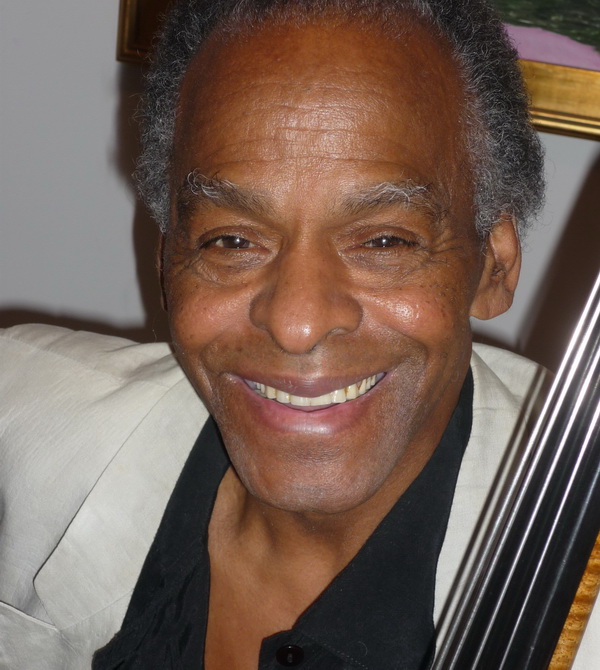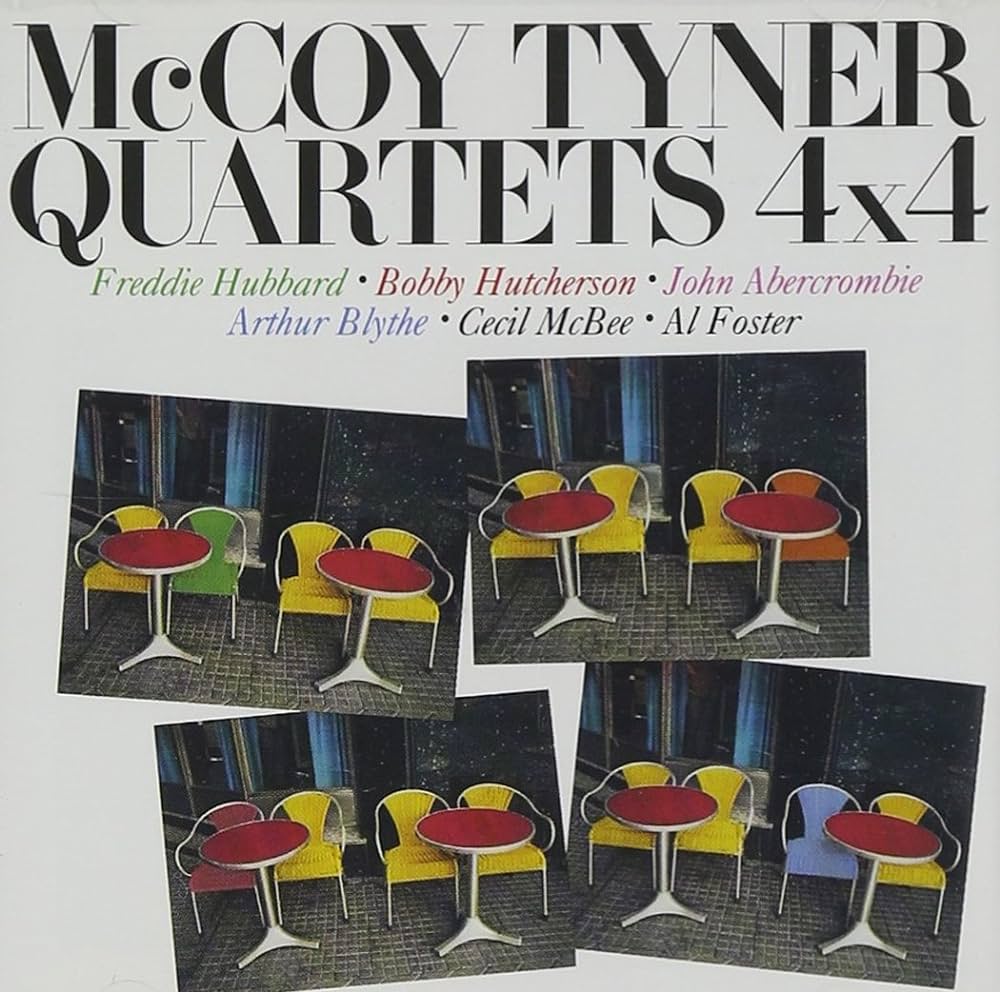Paradox – Cecil McBee
An angular and advanced song, well suited to the style of pianist McCoy Tyner who first recorded it. Solos are modal in D minor but the head has no key center.
- Recording: McCoy Tyner - Quartets 4x4
- Recorded on: May 29, 1980
- Label: Milestone (M 55007)
- Concert Key: D minor, No key center
- Vocal Range: , to
- Style: Swing (medium up)
- Trumpet - Freddie Hubbard
- Piano - McCoy Tyner
- Bass - Cecil McBee
- Drums - Al Foster
Video
- Description
- Historical Notes
- Solos
- Piano Corner
- Bass Corner
- Drum Corner
- Guitar Corner
- Inside & Beyond
- Minus You
An advanced composition in Cecil McBee's signature style, Paradox says a lot in just 20 measures. Though we call the first part of the song an intro, it's played before both the in and out heads. This section features two unison lines which slink up and down in alternating half steps and fourths; the first is played by piano and bass only, and the second adds the melody instrument (trumpet on the recording). Each of these phrases has a fermata at the end; the melody instrumentalist should cue the second phrase. After the second fermata, a bass note and a chord (in time) set up a melody pickup to A. The rest of the melody continues in an angular vein, either pentatonic or with similar augmented/diminished vocabulary to the intro. Rhythm section figures complement the melody throughout, with melody notes and hits often "bouncing" off each other on upbeats and downbeats. The harmonies are mostly sus chords, shifting around stepwise. Though there are no repeats, the last section of the head begins with a variation of the second intro phrase, again played tutti.
Solos are modal, open on Dm7sus (D Dorian). This chord is also held out as the last chord of the out melody.
In addition to our lead sheets, we have a bass part. Pianists and drummers should read the C lead sheet, which shows the bass notes that are doubled by the piano (written in circles above the staff).
Our audio excerpt starts at the beginning of the track; a rubato drum solo sets up the intro.
Solos are modal, open on Dm7sus (D Dorian). This chord is also held out as the last chord of the out melody.
In addition to our lead sheets, we have a bass part. Pianists and drummers should read the C lead sheet, which shows the bass notes that are doubled by the piano (written in circles above the staff).
Our audio excerpt starts at the beginning of the track; a rubato drum solo sets up the intro.
With its angular pentatonic lines over shifting sus chords, Paradox is a great vehicle for McCoy Tyner. "Quartets 4x4" was McCoy's first recording with Cecil McBee. In 1985, McCoy and Cecil played together on "One Night With Blue Note," an all-star concert celebrating the relaunch of the Blue Note label. Held at Town Hall in New York City, it was a fabulous event attended by founder Alfred Lion, engineer Rudy Van Gelder and artists from the label including Hank Mobley who came up from Philadelphia.
Other tracks on "Quartets 4x4" feature alto saxophonist Arthur Blythe, vibraphonist Bobby Hutcherson, and guitarist John Abercrombie in quartet settings with the same rhythm section. This album was the second of only two McCoy Tyner albums for Milestone (after "Horizon") that he recorded at Van Gelder Studio in Englewood Cliffs, New Jersey; all of his '60s albums as a leader, on Impulse and Blue Note, were recorded there.
Other tracks on "Quartets 4x4" feature alto saxophonist Arthur Blythe, vibraphonist Bobby Hutcherson, and guitarist John Abercrombie in quartet settings with the same rhythm section. This album was the second of only two McCoy Tyner albums for Milestone (after "Horizon") that he recorded at Van Gelder Studio in Englewood Cliffs, New Jersey; all of his '60s albums as a leader, on Impulse and Blue Note, were recorded there.
Related Songs
Email Send Paradox to a friend
Send this page to a friend via email. Add your name or email in the first field. In the second, add one or more email addresses, separated by a comma.

Cecil McBee
born on May 19, 1935
From the time he first arrived in New York City in 1964, Cecil McBee has remained one of the most in-demand bassists in jazz, appearing on hundreds of influential recordings as well as in clubs and concert halls throughout the world. During this same span of five decades, McBee has also become a celebrated composer and teacher, leading his own ensembles and earning a distinguished professorship at the New England Conservatory in Boston, where he has taught for over 25 years. Read more...
There was a problem.
...

